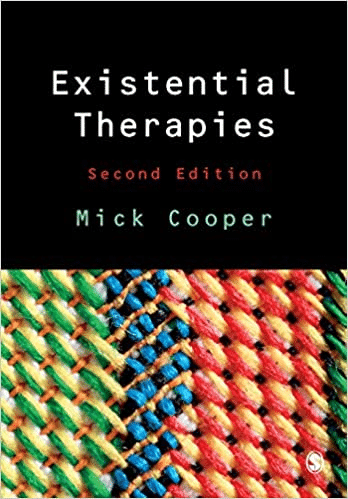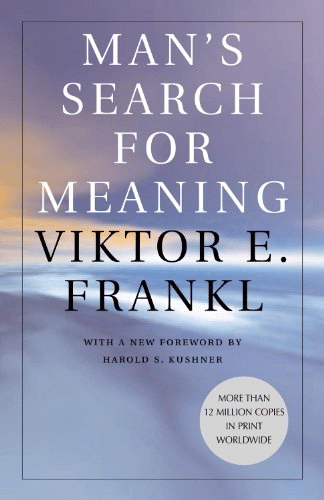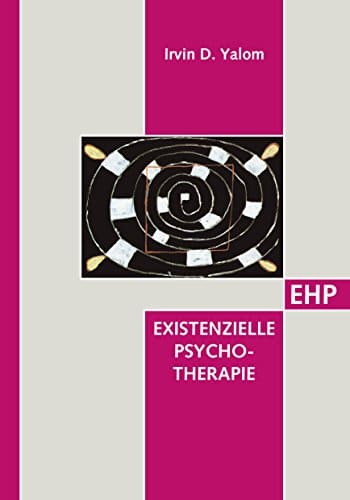Books for Therapists on Existential Therapy
The books here listed on existential therapy include classics that have been of great use to the whole health field, as it touches on what drives us, our liberty, our spirituality, and many more pertinent subjects to the human experience. Upon reading any of these books, whether you’re an existential psychologist or not, you’ll gain valuable insight into our way of living and, consequently, establish a better connection with your patients.
To keep this site running, we are an Amazon Associate where we earn from qualifying purchases. While these links are amazon affiliate links, the selection of books remains accurate and unbiased.
“A Process Model (Studies in Phenomenology and Existential Philosophy) by Gendlin and Parker

A Process Model, Gendlin’s magnum opus, offers no less than a new alternative to the dualism of mind and body. Beginning with living process, the body’s simultaneous interaction and identity with its environment, Gendlin systematically derives nonreductive concepts that offer novel and rigorous ways to think from within lived precision. In this way terms such as body, environment, time, space, behavior, language, culture, situation, and more can be understood with both great force and great subtlety. Gendlin’s project is relevant to discussions not only in philosophy but in other fields in which life process is central—including biology, environmental humanities, and ecopsychology. It provides a genuinely new philosophical approach to complex societal challenge.
“Beyond Good and Evil” by Nietzsche

A Process Model, Gendlin’s magnum opus, offers no less than a new alternative to the dualism of mind and body. Beginning with living process, the body’s simultaneous interaction and identity with its environment, Gendlin systematically derives nonreductive concepts that offer novel and rigorous ways to think from within lived precision. In this way terms such as body, environment, time, space, behavior, language, culture, situation, and more can be understood with both great force and great subtlety. Gendlin’s project is relevant to discussions not only in philosophy but in other fields in which life process is central—including biology, environmental humanities, and ecopsychology. It provides a genuinely new philosophical approach to complex societal challenge.
“Existential Psychotherapy” by Yalom

Existential therapy is practiced throughout the world. But until now, it has lacked a coherent structure. In Existential Psychotherapy, Irvin Yalom finds the essence of existential psychotherapy, synthesizing its historical background, core tenets, and usefulness to the practice. Organized around what Yalom identifies as the four “ultimate concerns of life” — death, freedom, isolation, and meaninglessness — the book takes up the meaning of each existential concern and the type of conflict that springs from our confrontation with each. Drawing from clinical experience, empirical research, philosophy, and great literature, Yalom provides an intellectual home base for those psychotherapists who have sensed the incompatibility of orthodox theories with their own clinical experience, and opens new doors for empirical research.
“Psychotherapy and Existencialism” by Frankl

Psychotherapy and Existentialism is a collection of essays and speeches by revolutionary existentialist psychologist Viktor Frankl, as he aims to elucidate and discuss man’s search for meaning. The texts dive into Frankl’s theory and provide a deeper and clear understanding of his theory, one that highly resonates with clients and therapists alike to this day.
“Existential Therapies” by Cooper

What does it mean to practice therapy in an existential way? What are the different existential approaches? What are their strengths and limitations? Focusing on practical, face-to-face work with clients, the book introduces students to six existential therapies, highlighting areas of commonality and difference, and discusses key figures and their contributions, including ****Yalom, van Deurzen, Spinelli, Frankl and Laing. It outlines the critical perspectives and key debates, and presents implications for practice, reflection and further reading.
“Man’s Search for Meaning” by Frankl

Psychiatrist Viktor Frankl’s memoir has riveted generations of readers with its descriptions of life in Nazi death camps and its lessons for spiritual survival. Between 1942 and 1945 Frankl labored in four different camps, including Auschwitz, while his parents, brother, and pregnant wife perished. Based on his own experience and the experiences of others he treated later in his practice, Frankl argues that we cannot avoid suffering but we can choose how to cope with it, find meaning in it, and move forward with renewed purpose. Frankl’s theory-known as logotherapy, from the Greek word logos (“meaning”)-holds that our primary drive in life is not pleasure, as Freud maintained, but the discovery and pursuit of what we personally find meaningful.
“Existenzielle Psychotherapie (EHP – Edition Humanistische Psychologie)” von Yalom

Existential therapy until now has lacked a coherent structure, and analysis of its tenets, and an evaluation of its usefulness. Irvin Yalom, whose Theory and Practice of Group Psychotherapy has rendered such a service to that discipline since 1970, provides a structure to existential psychotherapy: it describes the background, a synthesis and a framework. This writing is organized around the four ultimate concerns of life”,death, freedom, existential isolation, and meaninglessness. It takes up the meaning of each existential concern and the type of conflict that springs from our confrontation with each. Drawing from clinical experience, empirical research, philosophy, and great literature, Yalom has written a broad and comprehensive book.